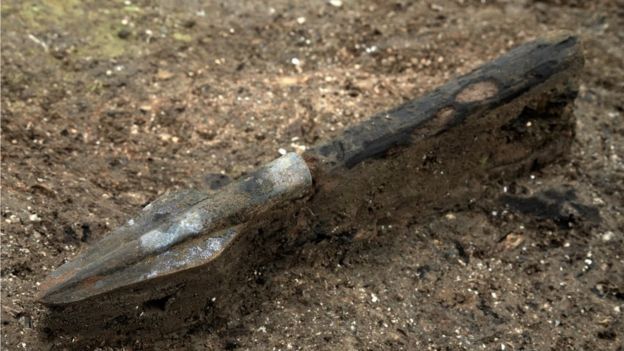Big fleas have little fleas etc. Where there was a monastery I'm sure there were a handful of churches nearby.
The ruins of Whitby Abbey are not the abbey that Hilda knew. The same goes for the rest of the country and as the north was really part of the Irish church it would be unusual for monasteries not to have existed.
The small All Saints church in Great Ayton is a Norman church. But inside there are stones which are definitely Celtic or Anglo Saxon knotwork. An occasional one is still built into the wall. What we have is a destroyed church rebuilt by the new rulers. As happened all over England. In fact similar things go on all over the world.
The Domesday Book records that there was an Anglo Saxon church in 1086, probably on the same site. Many local churches were destroyed in the “Harrying of the North” but the Great Ayton building appears to have survived. Despite this, the invaders wished to make their mark by building a new church in the twelfth century. Using the warm local sandstone they erected what was possibly the only stone building in the village.
http://greatayton.wdfiles.com/local--fi ... tayton.comNot far away is Nunthorpe named after a group of Cistercian nuns who had been evicted from Hutton Lowcross at Guisborough for 'rowdy behaviour'. The same thing happened at 'Thorpe' as it was known and they were evicted again to Baysdale which has Knights' Templar and Hospitaller connections.
This is all post conquest but usually things are built on what has gone before. Much easier especially as the convenient control centres have been long established as well as farming and trading practices.
http://www.nunthorpehistorygroup.org/nunthorpe_hall.htmhttp://www.british-history.ac.uk/vch/yo ... /pp413-417https://en.wikipedia.org/wiki/Gisborough_PrioryGuisborough Priory is set up not too long after the Conquest by none other than the Brus family. All of these locations are strategically important especially given it was a new country to the invaders and hostile.
And then along came Henry and destroyed the lot in his turn. Unlike the Normans he wasn't interested in rebuilding. A habit that has persisted through the ages in the London mindset.
I would imagine that underneath or beside every monastery there is an older one with the original records conveniently hidden. Rather like the ancient field systems in the article above that nobody knew about but must have walked over every day.



